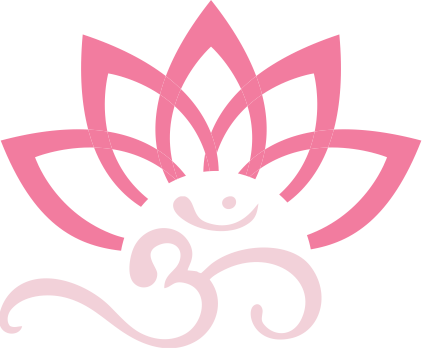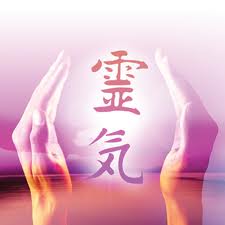Reiki is a gentle and non-invasive ancient natural healing therapy which does not cause pain or harm. Our entire universe “REI” is made up of energy and at a very basic level we are energy. The human life force energy or “KI” is an unseen energy stream that pours into the human energy field nourishing every part of the mind, body and soul. The word ‘REI’ has many different meanings but many believe it means soul or consciousness.
There are many different forms of Reiki, Each form of Reiki has its own methods and tools used to channel the healing universal energy and each form of Reiki has its own benefits. The two primary differentiations are Traditional Japanese Reiki (Eastern) and Western Reiki.
Usui/Tibetan Reiki and Usui Shiki Ryoho (the Usui System of Natural Healing) are the foundation of Western Reiki therapy systems and are a good place to start your journey along the path of healing. Many Reiki Practitioners in South Africa practice this form of Reiki, often combining it with other forms of Western and Japanese Reiki and other healing modalities. One of these combined forms of Reiki is known as Gendai Reiki. Traditional Japanese or Eastern Reiki includes: Jikiden Reiki, Usui Reiki Ryoho, Gakkai, and Komyo Reiki Kai. The essence of Japanese or Eastern Reiki is simplicity and pure energy, creating balance and harmony; it is a fluid and beautiful therapy to experience.
The difference between Reiki and other modalities is that the Reiki student or practitioner undergoes a Reiki attunement process or Reiju which connects the student to this spiritual energy , making it possible for the Reiki student to effectively channel the human life force energy, Ki, facilitated by a shift in the student’s own energy blueprint
What to Expect.
A Reiki therapy session begins at the head and ends at the feet, this is most relaxing. A Reiki session may begin elsewhere depending on the therapist and the needs of the client. The therapist’s hands are gently placed in various positions on or slightly above the body without pressure being applied. The “KI” or life force energy that facilitates the healing flows down through the therapist’s palms and fingertips into the receiver’s energy field. The therapist does not give of their own energy they simply channel universal energy from the source.
You may feel a number of sensations during your Reiki therapy, these could include heat, cold and tingling, you may even experience colour or sound. Sometimes you may feel nothing at all. The outcome of each treatment is determined by your own personal needs and no two people will experience REIKI the same way. Some of the frequent experiences include:
• Increased creativity energy and awareness
• Emotions are more balanced and appropriate
• Stress is managed better and easily released
• Accelerated healing and release of toxins
• Relief from pain and discomfort
• Elevated sense of well being
How to Choose Reiki Practitioner.
With over 120 styles of Reiki and Energy Healing being touted out there it is appreciably difficult for anyone looking for a Reiki practitioner to know what to look out for.
A Reiki practitioner is required to take responsibility for giving their clients the best treatment they can offer whilst under their care, with consideration of the client’s medical condition and personal situation. A Reiki practitioner is also required to act with honesty and integrity, with the wellbeing of their client top of mind, at all times.
Firstly, do not be afraid to ask questions when you call the practitioner. In fact, a good practitioner should have a good of knowledge about the subject and a broad and varied knowledge of natural healing. If the answers to your questions are vague or forced then look elsewhere. It does not matter whether the practitioner claims to have practiced for 26 years or 6 months, if they do not know what they are doing, are poorly trained and inexperienced they cannot help you.
Most importantly trust your intuition. It does not matter how knowledgeable someone may seem, if you feel that something is not quite right for you; trust your instincts.
Guidelines: When Choosing a Practitioner or Teacher.
Make sure the practitioner or teacher belongs to an accredited Reiki association and/or teaches an accredited course. The Reiki Association of Southern Africa can be contacted to confirm practitioner and teacher listings www.reikiassociation.co.za
Initiate contact by telephone. Ensure the practitioner can readily answer any of your questions. If a Reiki practitioner cannot explain Reiki to you in a candid and understandable manner, they clearly do not understand it themselves.
Many online sites offer distant Reiki healing treatments or Reiki training/attunements. This can be misleading and detrimental to you and your wellbeing as you have no idea of what you are getting. Do you want to allow someone you have never met, who may, or may not be adequately trained in Reiki, to access to your energy field; or worse to teach you Reiki? It is important to receive healing or teaching from qualified and accredited practitioners and teachers in person.
Reiki – Pure, Powerful and Profound
The Reiki energy is intelligent working at every level of our being, body, mind and spirit. The body, mind and spirit are not independent of one another. They are intertwined. What affects one affects the others


Well done Debra, an excellent article with lots of practical advice.
Please send me the Reiki training dates for Masters degree in Reiki.